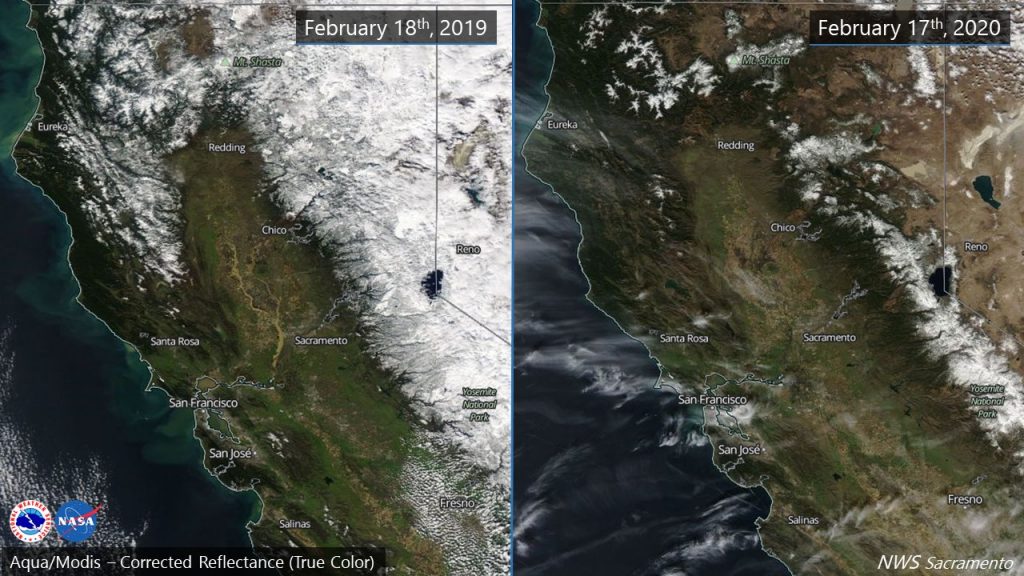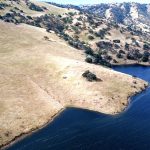Sacramento, CA (February 25, 2020) – Today, the U.S. Bureau of Reclamation (Reclamation) issued an initial water supply allocation of 15% for South-of-Delta Central Valley Project (CVP) contractors, including the Byron-Bethany Irrigation District (BBID).
After a promising start to winter, dry conditions have returned across California. It has rained more in February in Death Valley than in Sacramento. The statewide snowpack is below average, and the long-range forecast indicates the lack of rain and snowfall may continue.

This image released by the National Weather Service, illustrates the dramatic difference between this year and last year’s snowpack.
“While we certainly wish Reclamation was able to issue a higher allocation, we recognize they must be responsive to our state’s current conditions,” said BBID GM Rick Gilmore. “The looming threat of the next drought underscores the need for adaptative water management. Implementing the new biological opinions abandons an outdated, restrictive approach in favor of real-time, cutting-edge science to best meet the needs of cities, farms and the environment.”
For the first time in a decade, updated biological opinions were issued last week. Those federal rules govern water use through the Sacramento-San Joaquin Delta. Had those biological opinions been in place last year, it is estimated that the projects would have been able to save more than one-million acre-feet of additional water. That would be tremendously valuable in any year, but especially in a dry one like 2020. At a 15% allocation, growers in BBID’s CVP service area will have a baseline water supply of just 0.51 acre-feet of water per acre – down from 3.4 acre-feet per acre with a full allocation.
“This initial allocation also underlines the need for investment in our water systems, including increasing storage to save more water during wet years for use during dry ones; and more conveyance to move water more flexibly, ensuring reliability in the face of increasingly unpredictable, extreme weather patterns.”


